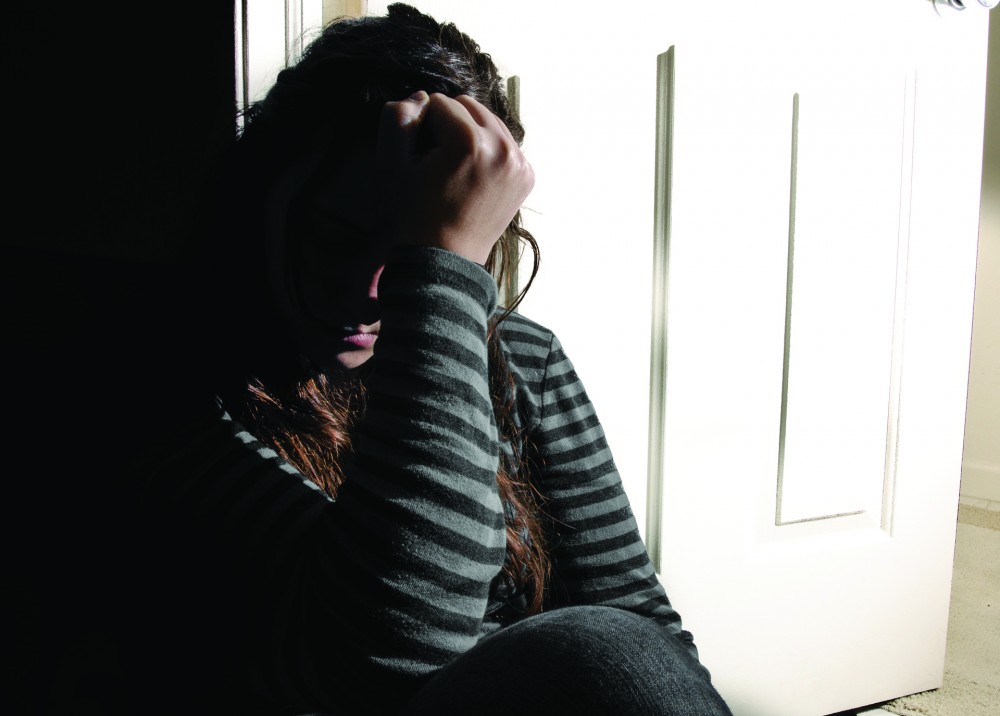Students struggle with Seasonal Affective Disorder during winter months

GVL Archives
Nov 28, 2012
During the winter months, Grand Valley State University students may become more susceptible to develop a form of depression known as Seasonal Affective Disorder.
According to the Astronomy Education of the University of Nebraska-Lincoln, when the Northern Hemisphere leans toward the Sun, there is a peak of 15 daylight hours in the summer months. In winter, when the Northern Hemisphere leans away from the Sun, longer shadows are produced with a peak of nine daylight hours. Because of this significant reduction of sunlight, a large population can safely say they feel miserable during winter time.
The National Institute of Health’s U.S. National Library of Medicine reports that each year, about six percent of the nation’s population suffers from SAD in its “marked form” – primarily in northern climates. An additional 14 percent of the population is affected by a lesser form of seasonal mood changes, often referred to as “winter blues.”
Feelings of hopelessness, increased appetite with weight gain or loss, increased sleep, social withdraw, irritability, loss of interest in work or other activities and loss of concentration are all symptoms of SAD.
Students who want to take treatment into their own hands have a few options. With concentration on maintaining a good diet, getting enough sleep, taking any medicine needed the right way, managing the side effects, attempting to exercise more often and watching for original signs and symptoms, students are capable of addressing the disorder before it increases.
Seeking out help is one of the best self-help treatments a student can practice, said sophomore Emily Pentis, who recently discovered that SAD was the reason she felt this same depression around the same time every year.
“Don’t think you are alone in this because a lot of people suffer from SAD,” Pentis said. “Make sure to talk to someone about it, because they won’t judge you. Talking to people is definitely key to helping yourself get better even though it can be scary at times.”
She also started to take vitamin supplements to increase her Vitamin D supply.
According U.S. National Library of Medicine, SAD is especially prominent when Vitamin D stores are low. Broad-spectrum light therapy, which includes therapy dealt with a sun lamp, has wavelengths between 280-320 nm that allow the skin to produce Vitamin D.
The GVSU Counseling Center accommodates students who claim to have a rough time going through the dingy winter months by providing different treatment options specific to SAD, including a sun lamp that is available for student use.
The sun lamp is a full spectrum light that, when shone onto skin, triggers the body’s production of Vitamin D, and in a sense reduces the feeling of depression.
Eric Klingensmith, clinical psychologist at GVSU, specifically pointed out that the counseling center offers people to talk to as well as group therapy in order to provide students with whatever they need to help them through the long winter days.
Klingensmith said that because students at this time of year are usually overwhelmed with the stress of exams and the upcoming holidays and, on top of that, the seasons are changing, students need to make sure that they are taking care of their basic needs.
“I think that with some people counseling will work, with others the light will work, and others taking care of their body will work,” he said. “Make sure to come in and see someone if you are struggling. Anyone can come in to use the light, and if things are not better, then try setting up an appointment with a counselor. Our services are free.”
To find out more about Seasonal Affective Disorder, visit the counseling center located in 204 Student Services building, or call (616) 331-3266 to set up an appointment with a counselor.
[email protected]
SYMPTOMS OF SAD
feelings of hoplessness
increased appetite with weight gain or loss
increased sleep
social withdraw
irritability
loss of interest in work or other activites
inability to concentrate
COMBAT SAD
Maintain a good diet
Adequate sleep
Stay active
Take a Vitamin D supplement
Ask for help






















